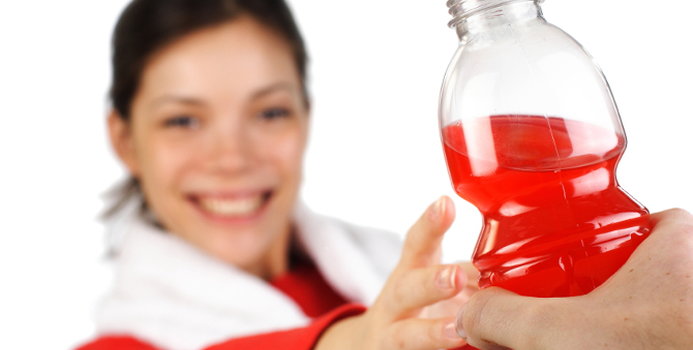The debate concerning sports drinks vs water as the better exercise drink concerns a number of factors, the most important of which is proper hydration. When exercising, the human body loses more water than during normal activity through sweat; this water must be replaced to maintain the body's health.
The Importance of Fluid Replacement
Water
Sports Drinks
Sports drinks do offer some benefits when comparing sports drinks vs. water. While water actually works better at fluid replacement, sports drinks are often more appealing to the palate. In other words, people who enjoy the taste of sports drinks may drink more of a sports drink than they would water; this will lead to better hydration.
Sports drinks also contain electrolytes and carbohydrates. While exercising for short periods of time, it is not necessary to replace electrolytes; however, athletes and marathon participants exercising for period of an hour or more can benefit from electrolyte replacement in particular. Carbohydrates offer the body energy. When the body burns calories, it needs carbohydrates to replace energy lost. The longer the workout, the more carbohydrates are needed.
Drinks to Avoid
Avoid carbohydrated sports drinks and energy drinks, as the sugar in these drinks will offer empty calories and the carbohydrates offer only short bursts of energy without good long-term effects.
Maintaining Proper Hydration
Keep water or a sports drink within easy reach at all times during athletic activity and workouts. Drink frequently during activity, but be sure to drink before and after activity as well. When people feel thirsty, the body is telling them that is is already dehydrated. Drinking even before the body feels thirsty is the best way to prevent dehydration damage. Drink an average of 4-6 ounces of liquid every 15 minutes during intense periods of activity.
Sports drinks vs. water comes down to the length and intensity of an athlete or exerciser's workout; water is never a poor choice, but there are benefits to supplementing a workout with some varieties of sports drinks as well. More important than selecting between the two is maintaining proper hydration before, during and after exercise.



